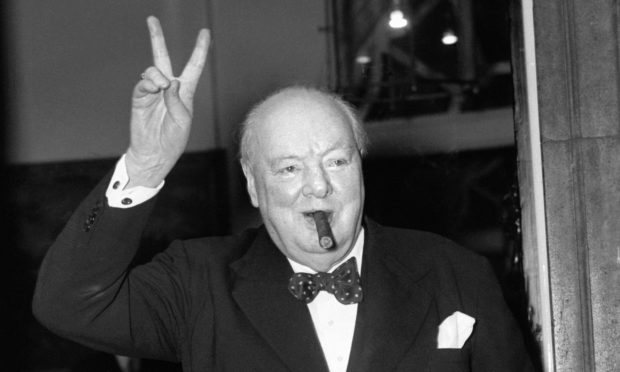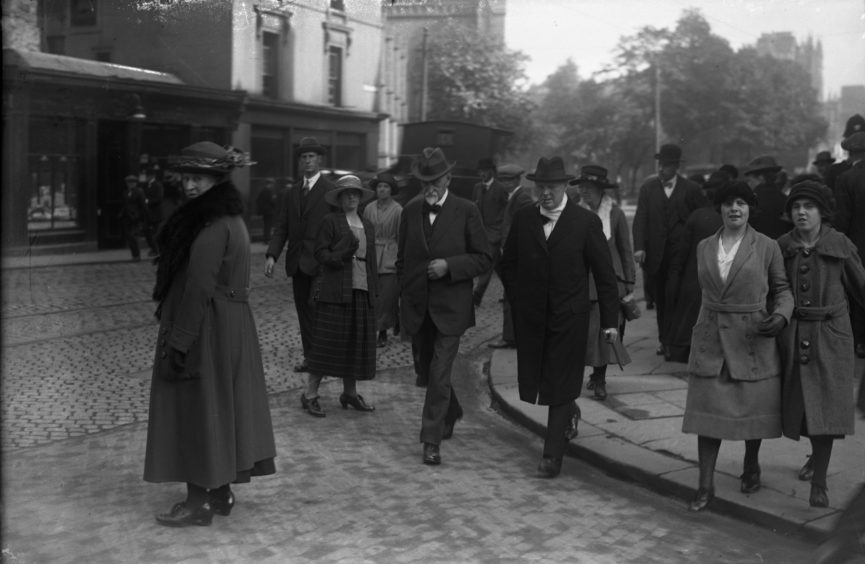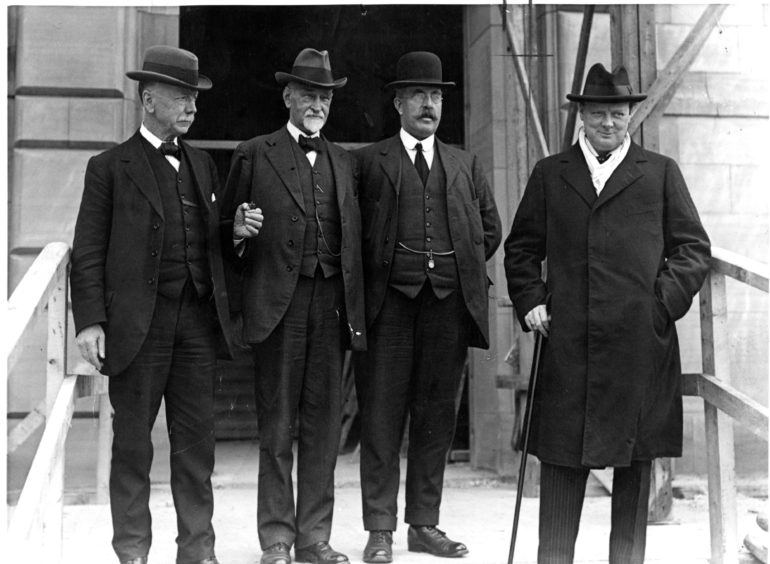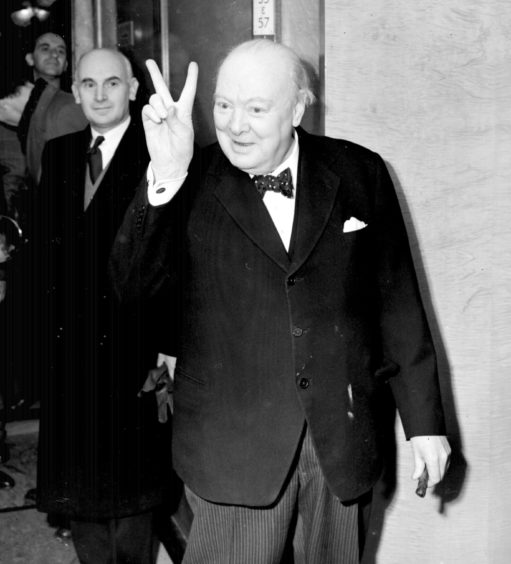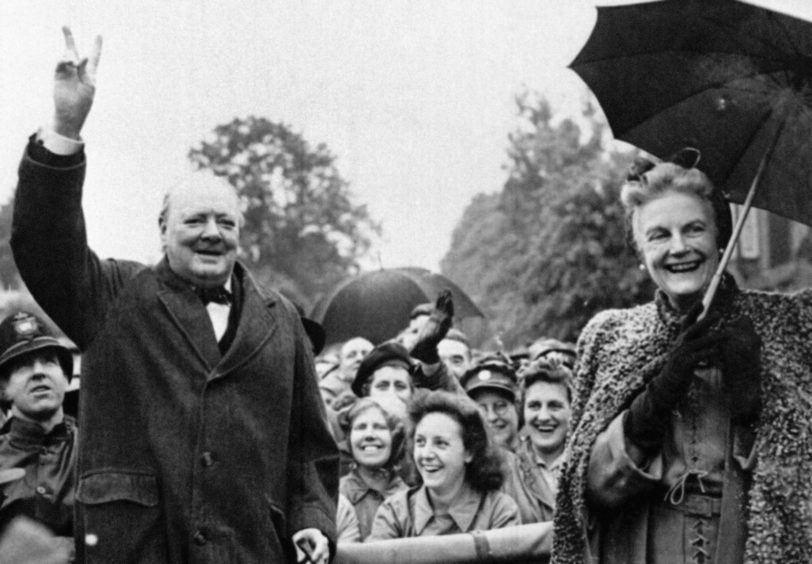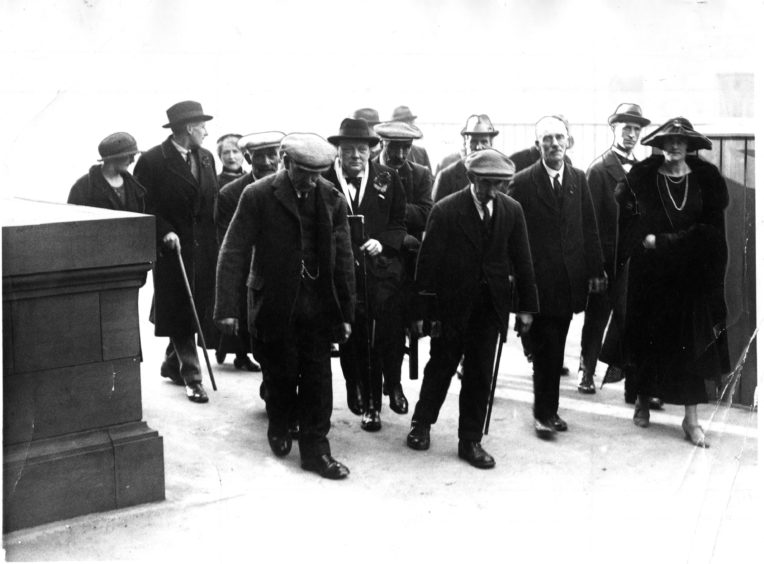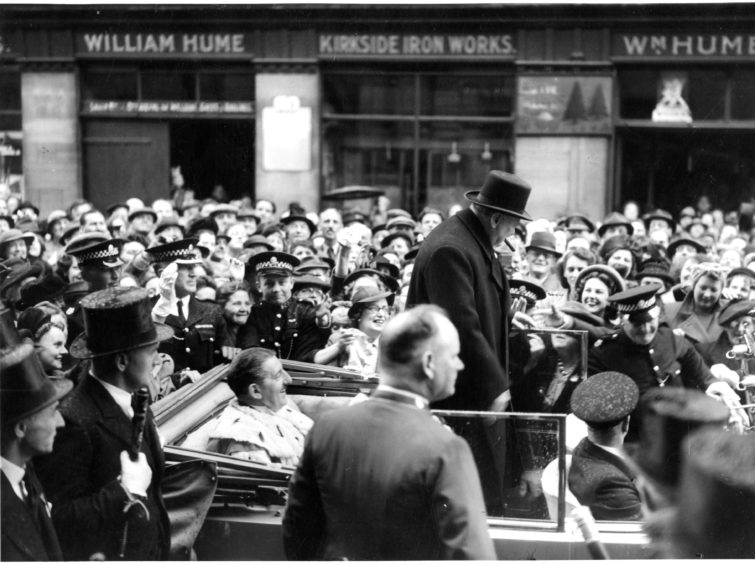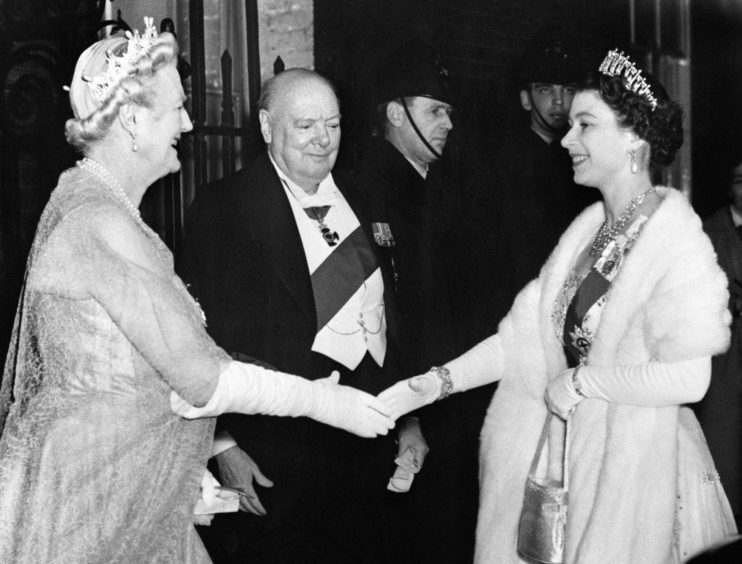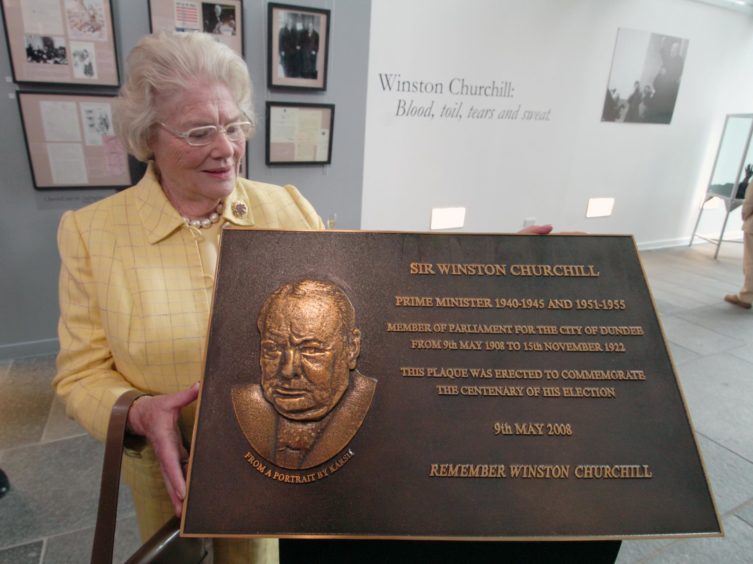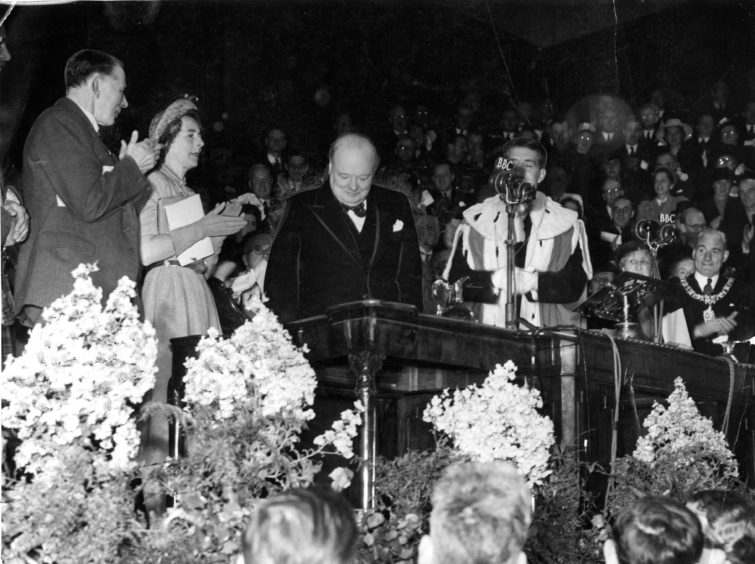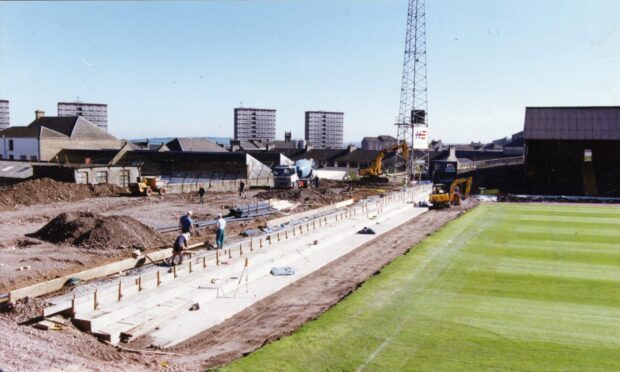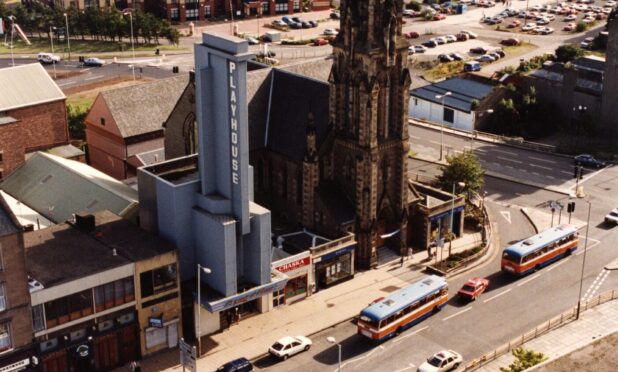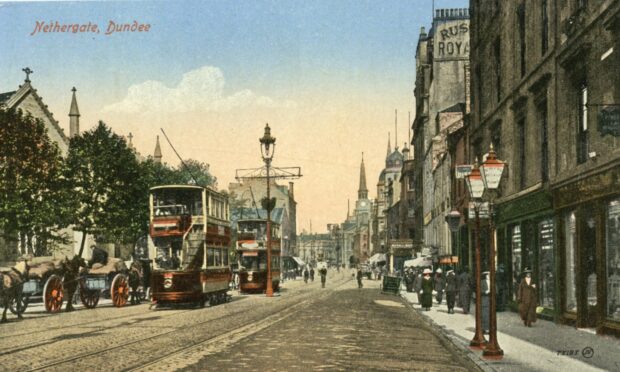Today marks 80 years since Churchill woke up to his first day on the job of prime minister – having been granted the position at midnight on May 10 1940. However, his relationship with Dundee – where he was MP for 14 years – was somewhat turbulent, as Gayle Ritchie finds out…
He was the prime minister who led Britain to victory in the Second World War, famous for his inspiring speeches and his refusal to give up the fight against the Nazis.
British Bulldog
With his jowly face and portly figure, Churchill was nicknamed the “British Bulldog”, and many consider him the greatest Briton of all time.
He became prime minister on May 10 1940, although many believed he was an unlikely candidate, given his reputation as a maverick politician and an imperialist reactionary.
Prior to this, Churchill had been MP for Dundee for 14 years, and while initially popular, he rapidly fell out of favour.
Here, he came to be regarded as an arrogant and pompous politician, described by the Dundee Catholic Herald in 1921 as “a dangerous, double-dealing, oily-tongued adventurer”.
The feelings appear to have been mutual – Churchill once described his constituency as “a great trial to me”, and “cheap and easy beyond all experience”.
And when he was offered the Freedom of Dundee in 1943, the great man declined.
Despite isolated calls for recognition of his place in Dundee’s history, Churchill’s tenure as Liberal MP between 1908 and 1922 was surrounded by so much animosity that a memorial plaque dedicated to the statesman wasn’t erected until 2008.
Jubilant supporters
Churchill was first elected as Dundee’s Liberal MP in May 1908 after having lost his seat in Manchester.
“Six minutes after his Manchester defeat, he was handed a telegram from the Dundee Liberal Association offering him the candidature at Dundee, much to the disappointment of some in the city who had hoped a local politician might have been asked to stand,” said Dundee-based historian Norman Watson.
“Churchill accepted the invitation and travelled to Scotland overnight. He was greeted at Dundee West Station by thousands of jubilant supporters when he arrived.”
The Liberal Party was “loved” by the working class in Dundee when Churchill first won his seat, said Dr Billy Kenefick, senior lecturer in history at Dundee University.
“There was much excitement at Churchill coming to Dundee from both sides of the political spectrum, but particularly from members of the Women’s Social and Political Union (WSPU) and the Women’s Freedom League, both of whom had branches in Dundee,” said Dr Kenefick.
“The city was now the focus of national interest and Mary Gawthorpe of the WSPU promised that the people of Dundee ‘could look out for lively times once the Liberal candidate arrived’ in the city.”
Drowned out by the bell
Irish suffragist Mary Maloney was famous for her acts of protest during the 1908 by-elections of Dundee in which the 34-year-old Churchill was running to regain a seat in parliament.
She would appear at his speaking engagements, demand he apologise for derogatory remarks he had made about the women’s suffrage movement, and proceed to drown him out by ringing a large bell when he refused and attempted to carry on with his planned remarks.
Her most famous interruption was during Churchill’s campaign speech at a Blackness factory on May 6 1908.
The meeting had to be aborted and Maloney thereafter became known as the “heroine of the bell”.
Honeymoon
For the first few years of their relationship, Churchill and Dundee experienced something of a “honeymoon period”, said Dr Kenefick.
He set up his headquarters in the city’s Queen’s Hotel and spent much of his time in the Dundee Advertiser’s Bank Street offices, poring over proofs of his speeches as they were typeset within minutes of his meetings.
Fell out of favour
Despite Churchill’s initial popularity in Dundee, he began to lose face with the city’s residents.
Two years into his tenure, he responded to miners’ strikes in Wales by sending in armed forces – a response that would not have gone down well with the predominantly working class Dundee.
And in 1911, he introduced the military into Liverpool during the national transport workers’ strike. This resulted in the death of two strikers and injury to hundreds during the industrial protest that ensued.
“From then on, he was to lose working class support, and this continued during and after the First World War,” said Dr Kenefick.
“Like so many serving and ex-servicemen they blamed Churchill for the Dardanelles failure and the loss of so many men at Gallipoli during 1915.”
The tension would rise following the First World War as the Irish communities within Dundee, who Churchill had been popular with, would turn against him after he ordered the Black and Tans into Ireland on March 25 1920.
He also opposed votes for women and told the Commons that they were: “well represented by their fathers, brothers and husbands”.
This was never going to get him votes in Dundee, where many women working in the mills and factories were their family’s main breadwinner.
Indeed, the suffragette Ethel Muirhead pelted Churchill with an egg during a political meeting in 1910, while another suffragette jumped into his carriage at the Tay Bridge Station.
Meanwhile, irate agricultural workers threw mud at him, and others dropped slates on him from a rooftop.
On top of this, Dundonians were resentful of the politician for his extended absences from the city, with many suggesting that Churchill purposely flaunted his wealth during visits.
Indeed, it was claimed that Churchill spent the equivalent of £1,000 on a three-day visit to Dundee, much of it on alcohol.
An enormous maggot
Certainly, the city’s new MP wasn’t much of a constituency champion. The 440-mile journey from Westminster to Dundee involved an overnight train from King’s Cross and Churchill’s top hat was rarely seen in the Nethergate.
The local lack of fondness for Churchill was reciprocated by the MP, who struggled with the city’s conditions.
In a letter to his wife Clemmie when he was staying at a hotel in 1909 he wrote: “This city will kill me. Halfway through my kipper this morning an enormous maggot crawled out and flashed his teeth at me. Such are the penalties which great men pay in the service of their country.”
Lavish lifestyle
The Dundee public would have been conscious of Churchill’s well-publicised excess and lavish lifestyle – although despite his considerable earning power, he was deeply in debt.
“He had many benefactors, patrons and backers who it is said kept him supplied with cigars and alcohol, suits and servants as well as funding his untiring political ambition,” said Dr Kenefick.
“Good fortune came his way in 1922 when he received a substantial inheritance which could have cleared his debt (reputedly around $3 million).
“But he elected to buy a Rolls Royce, continue to play the gambling tables of the French Riviera and purchase Chartwell House in September 1922.”
1922 general election
Churchill’s campaign for the 1922 general election got off to a rocky start when he was struck down with appendicitis.
An operation left him desperately weak and barely able to walk, so public appearances and speeches were tricky.
“It’s little wonder that any sympathy he might have received when he underwent an appendectomy in October of that year – resulting in the forlorn image of him being carried in and around Dundee on a sedan chair – cut little ice with the voters of Dundee,” said Dr Kenefick.
It’s said locals were paid £1 each to carry him around in the chair, and offered £2 by their peers to drop him.
It was no surprise when Churchill lost his Dundee seat to anti-war pro-Prohibitionist councillor Edwin Scrymgeour, who had taken him on at every election since 1908.
Churchill finished a distant fourth – behind a Labour and a local Liberal candidate.
“It’s little wonder that any sympathy he might have received when he underwent an appendectomy in October of that year – resulting in the forlorn image of him being carried in and around Dundee on a sedan chair – cut little ice with the voters of Dundee.”
“By the time of the general election in November 1922, the socio-political and economic situation in Dundee had changed dramatically,” said Dr Kenefick.
“Dundee was awash with thousands of demobilised and unemployed ex-servicemen and a working community that cared little for Churchill’s cavalier attitude to the Soviet Union and trade union affairs more generally,
“A major political shift had taken place in Scotland in 1922 and this was reflected at Dundee.”
Distraught, but not defeated, the typically witty Churchill quipped that he left Dundee: “without an office, without a seat, without a party and without an appendix”.
Rejection
Churchill finally cleared his debts, but only after the Second World War, and as a result of his writing, memoirs and books, speaking invitations and tours.
But little changed throughout his life and this is perhaps best summed up with a typical Churchill quote: “My tastes are simple: I am satisfied with the best”.
Churchill had no further meaningful association with Dundee after 1922 until October 1943 during the Second World War.
Dundee Town Council proposed to confer upon him the Freedom of the City and on being put to the vote, it was carried only by one vote – 16 to 15.
In response, Churchill sent a terse reply stating he was unable to accept the offer. This was read out at a council meeting without comment.
No further invitation was ever extended to Churchill and to this day his only public Dundee dedication is a solitary plaque mounted on the gable end of a building on the corner of Nethergate and West Marketgait.
The bronze plaque was unveiled by his daughter in 2008, marking the 100th anniversary of his election as Dundee’s man in Westminster.
The DC Thomson spat
Churchill fell out with influential local newspaper magnate David Couper Thomson (1861-1954), describing him as a “narrow, bitter, unreasonable being, eaten up by his own conceit”.
Between 1920 and 1922, Mr Thomson actively campaigned using vitriolic rhetoric against Churchill.
At one meeting, Churchill was able to speak for only 40 minutes when he was barracked by a section of the audience.
At the General Election of 1922 both of the local newspapers owned by Mr Thomson, the Liberal-supporting Dundee Advertiser and the Conservative-inclined Courier, advised their readers to reject Churchill.
Mr Thomson barred Churchill’s name from his newspapers until the First World War made occasional use of it unavoidable.
Speeches
Dundee’s Caird Hall was the training ground for some of Churchill’s famous speeches in the 1940s.
The best known and most quoted are “Blood, toil, tears and sweat” (May 13 1940); “We Shall Fight on the Beaches” (June 4 1940); and “This was their Finest Hour” (June 18 1940); all of which were delivered in the House of Commons.
V for Victory
Churchill first used the V for Victory sign on July 19 1941, to symbolise defiance during World War Two.
The hand gesture became one of the defining images of defiance during the bloody conflict.
Today, the gesture is more commonly acknowledged as meaning “peace” but back in 1941 it was much more powerful.
Although the famous wartime symbol is synonymous with Churchill, he wasn’t even the one who came up with it.
The sign was first dreamt up in Belgium a year before it swept across Europe and into Britain.
RIP
Churchill was prime minister of the UK from May 1940 to July 1945, when he led the country to victory in the Second World War. He did this again from October 1951 to April 1955.
He died on January 24 1965 at home at 28 Hyde Park Gate, London. Since 1949, he had suffered eight strokes.
The last was on January 15 1965 from which he never recovered.
His body lay in state in Westminster Hall for three days and a state funeral service was held at St Paul’s Cathedral on January 30 1965.
On January 25, 500 people attended a memorial service for the great man at St Mary’s Parish Church in Dundee.
